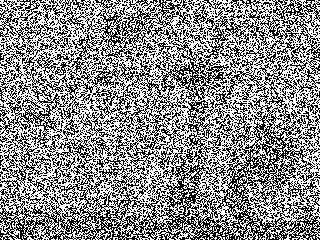Monday, November 30, 2009
Myth of Silence
The podcasts for a conference entitled "'The Myth of Silence?': Who Spoke About the Holocaust and When" that was recently held at UCLA can now be found online. Speakers included Alvin Rosenfeld, Hasia Diner, and Alan Rosen among others.
Thursday, November 12, 2009
White Noise: The Disaster Un-Mediated
 I just finished teaching Don DeLillo's White Noise for a senior seminar called "The American Literary Response to Trauma." This is one of those books that reveals more and more with each new reading. I'm working on the DeLillo chapter of my book manuscript right now, and so I was especially invested in working through some of my ideas in the classroom.
I just finished teaching Don DeLillo's White Noise for a senior seminar called "The American Literary Response to Trauma." This is one of those books that reveals more and more with each new reading. I'm working on the DeLillo chapter of my book manuscript right now, and so I was especially invested in working through some of my ideas in the classroom.I'm mostly interested in the novel as a non-representational response to the collective tragedy of the Holocaust. The novel's main character, for example, Jack Gladney, is the Chair of Hitler Studies at his university. He is obsessed with Hitler, and even attempts to look and speak like Hitler (even though he, embarrassingly, cannot speak German). And throughout the novel we get all sorts of tidbits of information about Hitler and Nazi Germany. But there is something conspicuously missing from the novel: there is no mention of the Holocaust or anything that even suggests that Hitler was attached to murder or genocide or anything of the sort. No Final Solution, no smoke-filled chimneys, not even any mention of Jews. Jack Gladney has a blindspot. He lacks an awareness of the ethical dimension of his studies. But we bear witness to his blindspots, his inabilities--and we become secondary witnesses to the disaster of the Holocaust, the event that, in the words of Maurice Blanchot, robs us of all authenticity.
It is this omission of the most obvious aspects of the disaster that draw our attention to it in a way that is unmediated, unfiltered by media or artistic impulses (well, for the most part). Jack's experience of the disaster may in fact be mediated by "white noise," but ours is not--or, at least not to the degree Jack's is. In an era that has become somewhat dominated by media representations of the Holocaust and other collective atrocities, White Noise may be one of the more innovative approaches to dealing with the subject matter.
We've seen enough footage from the events of WWII. We've watched enough films and read enough novels that attempt to show how things really were. And it simply hasn't been enough to appease or satisfy our curiosity. But in DeLillo's novel, the ethical category is broached in the sense that we bear witness to the shattering of mediated realities, even when the characters themselves are unable to bear witness (i.e. Jack's inability to address the atrocities perpetrated by Hitler and his regime). Limit experiences such as the Holocaust pose especially pronounced difficulties because their very breadth and intensity compel us to return to them again and again as topics, using whatever artistic or media outlets we can; and yet truly witnessing a traumatic event like this means that our experience of it is colored by gaps and silences and blindspots.
The question is how do we make these darknesses visible?
We've seen enough footage from the events of WWII. We've watched enough films and read enough novels that attempt to show how things really were. And it simply hasn't been enough to appease or satisfy our curiosity. But in DeLillo's novel, the ethical category is broached in the sense that we bear witness to the shattering of mediated realities, even when the characters themselves are unable to bear witness (i.e. Jack's inability to address the atrocities perpetrated by Hitler and his regime). Limit experiences such as the Holocaust pose especially pronounced difficulties because their very breadth and intensity compel us to return to them again and again as topics, using whatever artistic or media outlets we can; and yet truly witnessing a traumatic event like this means that our experience of it is colored by gaps and silences and blindspots.
The question is how do we make these darknesses visible?
Subscribe to:
Posts (Atom)



